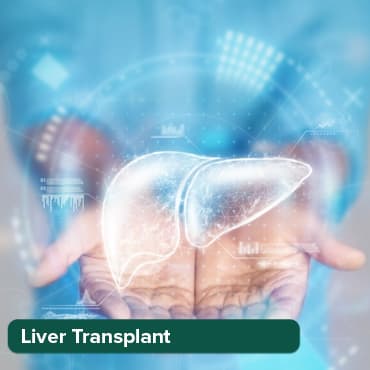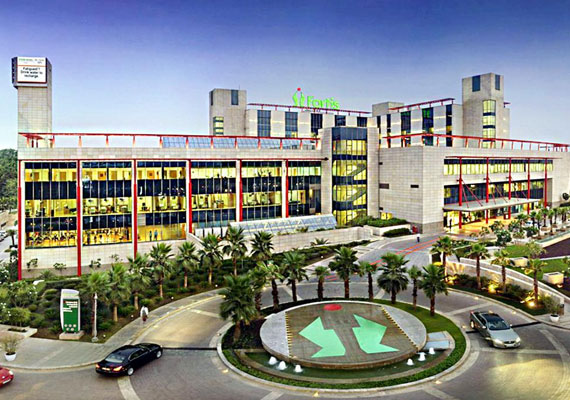
Molecular Targeted Therapy for Blood Cancer Treatment in India
29 Nov, 2023
 Healthtrip Team
Healthtrip TeamBlood cancer, scientifically known as hematologic cancer, is an intricate category of malignancies that affects the blood, bone marrow, and lymphatic system. Traditional treatments, such as chemotherapy and radiation therapy, while effective, often come with significant side effects and may not be as precise in targeting cancer cells. This is where Molecular Targeted Therapy (MTT) emerges as a cutting-edge solution. In this detailed blog post, we will delve into the intricacies of Molecular Targeted Therapy, its pivotal role in treating blood cancer, its applicability, the procedural nuances, and the manifold advantages it brings. Additionally, we will spotlight some of the leading hospitals in India that excel in offering this advanced treatment and provide insights into the associated costs.
Transform Your Beauty, Boost Your Confidence
Find the right cosmetic procedure for your needs.

We specialize in a wide range of cosmetic procedures

What Is Molecular Targeted Therapy for Blood Cancer?
Molecular Targeted Therapy represents a specialized and innovative approach to cancer treatment. It centers on the precise targeting of specific molecules or proteins that play pivotal roles in the growth and dissemination of cancer cells. What sets MTT apart from traditional treatments is its remarkable ability to minimize damage to normal, healthy cells, thereby significantly reducing the often debilitating side effects associated with conventional therapies.
Why Molecular Targeted Therapy for Blood Cancer?
- Precision Medicine: MTT stands as an epitome of precision medicine in oncology. It is meticulously designed to address the exact genetic or molecular abnormalities that are present within the cancer cells. This tailor-made approach ensures that treatment is not only effective but also specific to the individual patient's unique cancer profile.
- Reduced Side Effects: One of the most compelling reasons to opt for MTT is its capacity to selectively target cancer cells while sparing healthy tissues. Consequently, patients undergoing MTT experience markedly fewer side effects compared to conventional treatment modalities.
- Improved Treatment Outcomes: The specificity and precision of MTT often translate into superior treatment outcomes. Patients frequently observe higher response rates, enhanced tumor regression, and extended survival, providing newfound hope in their battle against blood cancer.
Who Needs Molecular Targeted Therapy for Blood Cancer?
Molecular Targeted Therapy serves as an invaluable tool primarily for individuals grappling with blood cancers that exhibit specific molecular or genetic markers. Patient selection for MTT is predicated on a meticulous evaluation of diagnostic tests and a comprehensive genetic profiling of their cancer cells. It is incumbent upon healthcare professionals to discern whether a patient's blood cancer harbors the requisite molecular targets to harness the full potential of MTT.
The Procedure for Molecular Targeted Therapy in Blood Cancer
1. Diagnosis and Molecular Profiling:
The journey begins with a comprehensive diagnosis and molecular profiling of the patient's cancer. This step is crucial in understanding the genetic makeup of the cancer cells. It involves various diagnostic tests and genetic analyses to identify specific genetic mutations or abnormalities that can be targeted with MTT.
Most popular procedures in India
Atrial septal defect
Upto 80% off
90% Rated
Satisfactory

Coronary Angiogram a
Upto 80% off
90% Rated
Satisfactory

Coronary Angiogram C
Upto 80% off
90% Rated
Satisfactory

Liver Transplant
Upto 80% off
90% Rated
Satisfactory

Total Hip Replacemen
Upto 80% off
90% Rated
Satisfactory

- Diagnostic Tests: Patients undergo a series of diagnostic tests, including blood tests, bone marrow biopsies, and imaging studies (such as CT scans or PET scans), to confirm the presence of blood cancer and determine its stage.
- Molecular Profiling: In addition to traditional diagnostic tests, molecular profiling is performed to delve deeper into the genetic characteristics of the cancer cells. This profiling helps identify specific genetic mutations, alterations, or overexpressed proteins that are driving the cancer's growth.
2. Target Identification:
Once the molecular profile of the cancer is obtained, a multidisciplinary healthcare team, including oncologists, hematologists, and geneticists, collaborates to identify the specific molecular targets within the cancer cells that can be addressed with targeted therapies.
- Genetic Abnormalities: The team carefully examines the genetic abnormalities and mutations detected during molecular profiling. They determine which of these alterations are driving the cancer's growth and are amenable to targeted interventions.
3. Treatment Planning:
With a clear understanding of the patient's unique molecular profile and the specific molecular targets identified, the healthcare team develops a personalized treatment plan. This plan takes into account the patient's medical history, overall health, and any previous treatments they may have received.
- Personalized Approach: MTT is highly individualized. The treatment plan is tailored to the patient's specific genetic and molecular characteristics, ensuring that the therapy is optimized for their particular case.
4. Targeted Therapy Administration:
Once the treatment plan is finalized, patients begin receiving the targeted therapy. These therapies are designed to precisely target and interfere with the identified molecular abnormalities within the cancer cells.
- Administration Methods: Targeted therapies can be administered in various ways, depending on the specific medication and the patient's condition. Common methods include oral medications (taken by mouth) and intravenous infusion (administered directly into the bloodstream through a vein).
- Monitoring and Adjustments: Throughout the course of treatment, patients are closely monitored for their response to the targeted therapy. Adjustments to the treatment plan may be made based on how well the cancer is responding and any side effects experienced.
Molecular Targeted Therapy offers the advantage of honing in on the specific drivers of blood cancer while sparing healthy cells, which can result in reduced side effects and improved treatment outcomes. It represents a significant advancement in the field of cancer care, offering hope and improved quality of life for individuals facing the challenges of blood cancer.
Benefits of Molecular Targeted Therapy for Blood Cancer
- Reduced Side Effects: MTT minimizes damage to healthy cells, leading to fewer side effects such as nausea, hair loss, and fatigue.
- Improved Quality of Life: Patients often experience a better quality of life during treatment due to reduced side effects.
- Higher Response Rates: MTT can lead to more significant tumor shrinkage and improved treatment response.
- Extended Survival: Some patients may experience longer survival and disease control with targeted therapies.
Molecular Targeted Therapy (MTT) for Blood Cancer Treatment: Side Effects
- Skin Rash: Some targeted therapies may cause skin-related side effects, such as rashes, dryness, or itching.
- Gastrointestinal Issues: Patients may experience nausea, diarrhea, or other digestive problems during MTT.
- Fatigue: Fatigue is a common side effect, which can affect daily activities.
- Elevated Blood Pressure: Certain targeted therapies may lead to increased blood pressure, requiring monitoring and management.
Manage MTT side effects for Blood Cancer by staying in close contact with your healthcare team and maintaining a healthy lifestyle with rest, nutrition, and light exercise.
Finest Hospitals in India Offering Molecular Targeted Therapy for Blood Cancer
1. Apollo Hospitals, Chennai

- Apollo Hospitals is a chain of hospitals with over 70 hospitals in India and abroad.
- The hospital in Chennai is one of the oldest and most reputed hospitals in India.
- It has a dedicated cancer center that offers a wide range of treatments, including molecular targeted therapy.
- The hospital has a team of experienced oncologists and uses advanced technology for diagnosis and treatment.
- The hospital has over 600 beds and provides 24/7 emergency services.
- The hospital has a blood bank and pharmacy on its premises.
2. Fortis Memorial Research Institute, Gurgaon

- Fortis Memorial Research Institute is a multi-specialty hospital located in Gurgaon, Haryana.
- The hospital has a dedicated cancer center that offers a wide range of treatments, including molecular targeted therapy.
- The hospital has a team of experienced oncologists and uses advanced technology for diagnosis and treatment.
- The hospital has over 1000 beds and provides 24/7 emergency services.
- The hospital has a blood bank and pharmacy on its premises.
3. Max Super Speciality Hospital, Delhi

- Max Super Speciality Hospital is a chain of hospitals with over 14 hospitals in India.
- The hospital in Delhi is one of the most reputed hospitals in India.
- It has a dedicated cancer center that offers a wide range of treatments, including molecular targeted therapy.
- The hospital has a team of experienced oncologists and uses advanced technology for diagnosis and treatment.
- The hospital has over 500 beds and provides 24/7 emergency services.
- The hospital has a blood bank and pharmacy on its premises.
4. Artemis Hospitals, Gurgaon

- Artemis Hospital, established in 2007, spread across 9 acres, is a 400-plus-bed; state-of-the-art multi-specialty hospital located in Gurgaon, India.
- Artemis Hospital is the first JCI and NABH-accredited hospital in Gurgaon.
- Designed as one of the most advanced in India, Artemis provides a depth of expertise in the spectrum of advanced medical & surgical interventions, comprehensive mix of inpatient and outpatient services.
- In 2011 it received the 'Asia Pacific Hand Hygiene Excellence Award' by WHO.
- Along with state-of-the-art infrastructure, the hospital excels in the fields of cardiology, CTVS Surgery, neurology, neurosurgery, Neuro interventional, oncology, Surgical Oncology, orthopedics , Spine Surgery, Organ Transplants, General Surgery , emergency care &Women & child care.
Explore advanced Blood Cancer Treatment options in India Start your journey to recovery with HealthTrip. Find the best hospitals and expert oncologists today!
Molecular Targeted Therapy has revolutionized the treatment of blood cancer by offering a more precise and effective approach. It is particularly beneficial for patients with specific genetic or molecular abnormalities. While it offers many advantages, including reduced side effects and improved outcomes, it is essential for patients to consult with their healthcare team to determine if MTT is the right treatment option for their condition. India boasts several leading hospitals that provide this advanced treatment, offering hope and improved quality of life for individuals battling blood cancer.
Wellness Treatment
Give yourself the time to relax
Lowest Prices Guaranteed!

Lowest Prices Guaranteed!




